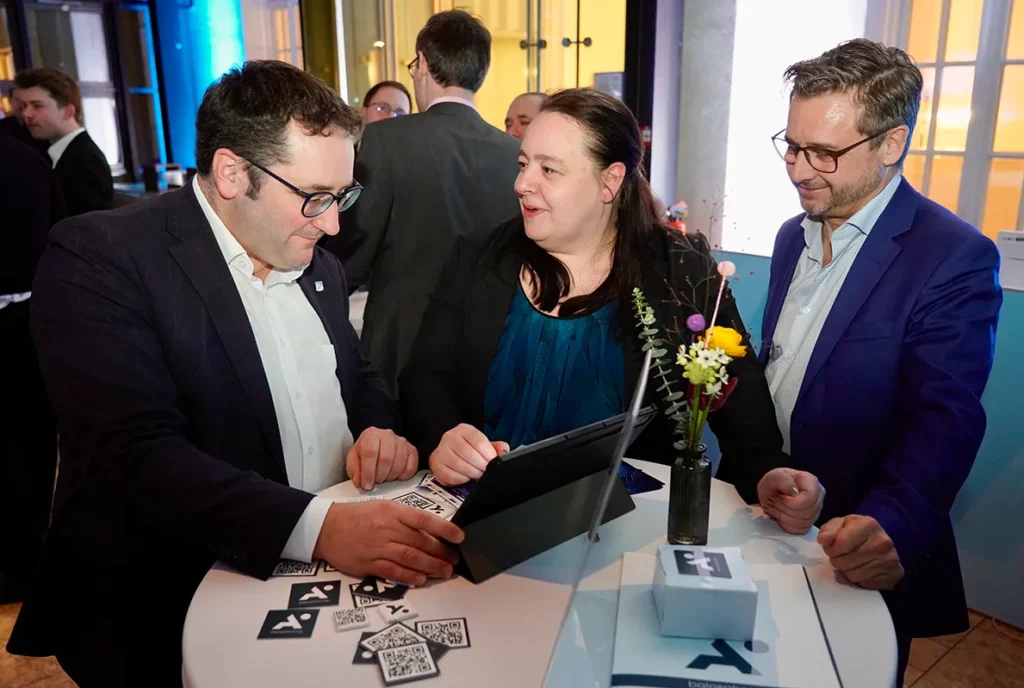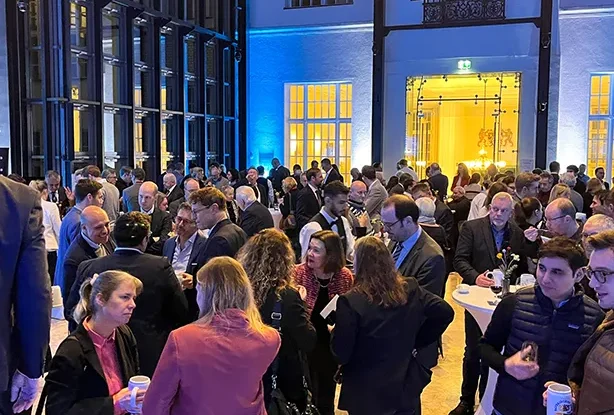Four AI experts from the Bavarian AI scene discussed how the future of artificial intelligence is being shaped in Bavaria with around 180 guests at the Bavarian Representation at the end of January. Dr. Michael Klimke, CEO of the Bavarian AI Agency, moderated the lively discussions between Prof. Gitta Kutyniok (Chair of Mathematical Foundations at LMU Munich and Director of RelAI), Dr. Felix Reinshagen (co-founder of NavVis and AI Council member), Prof. Alexander Martin (Director of the Fraunhofer Institute IIS and AI Council member) and Madeleine Just (Director of Operations, Celonis Labs) in front of a highly interested audience from politics, business and associations.
Highly competitive and innovative: the AI environment in Bavaria
The expert panel provided in-depth insights into current developments in the rapidly evolving AI sector with a view from Bavaria in the context of global perspectives and challenges. A key topic was Bavaria’s proactive approach to promoting AI research and development. Success stories from companies such as decacorn Celonis or NavVis illustrate that Bavaria not only attracts top international talent but can also remain competitive in the highly competitive global markets. This environment is positively reinforced by the commitment of the Bavarian state government: The Hightech Agenda Bayern has been recruiting internationally renowned researchers since 2019 and is further establishing Bavaria as a leading AI innovation location.












